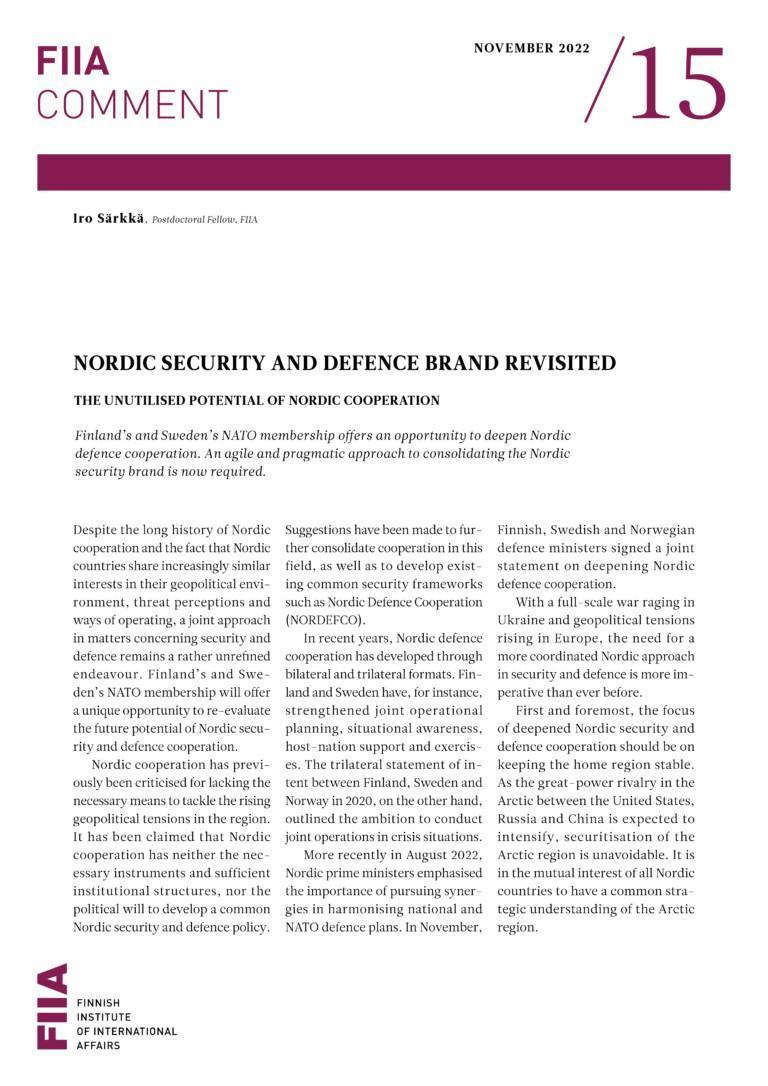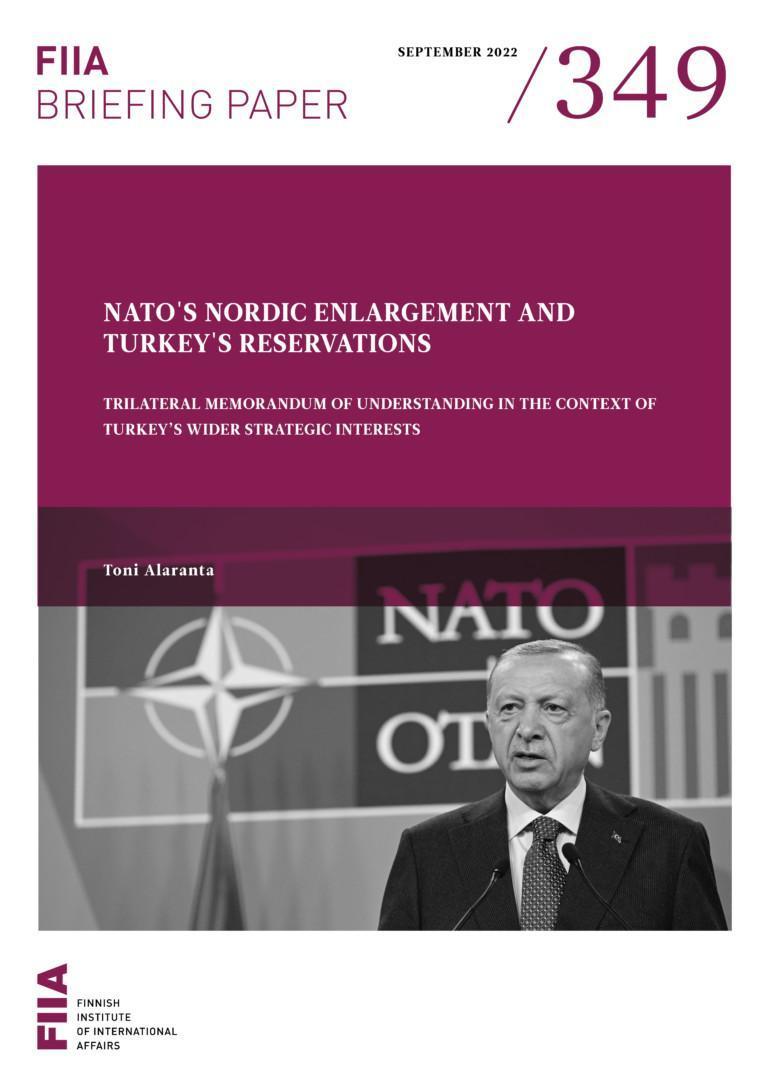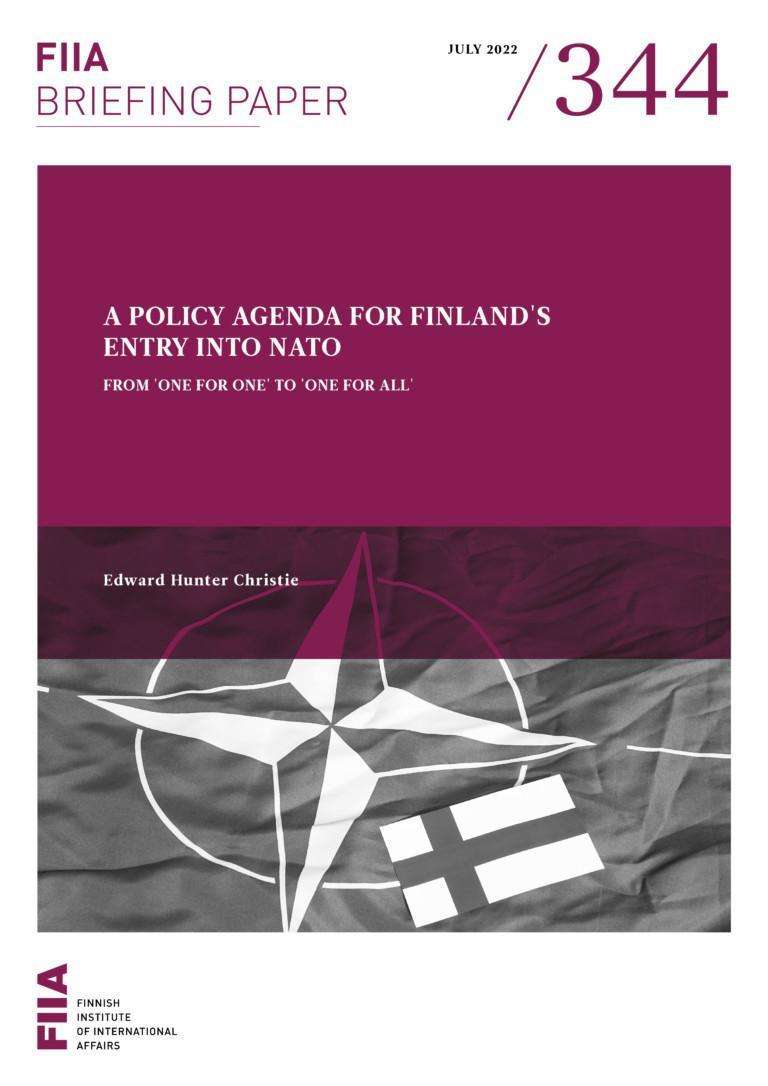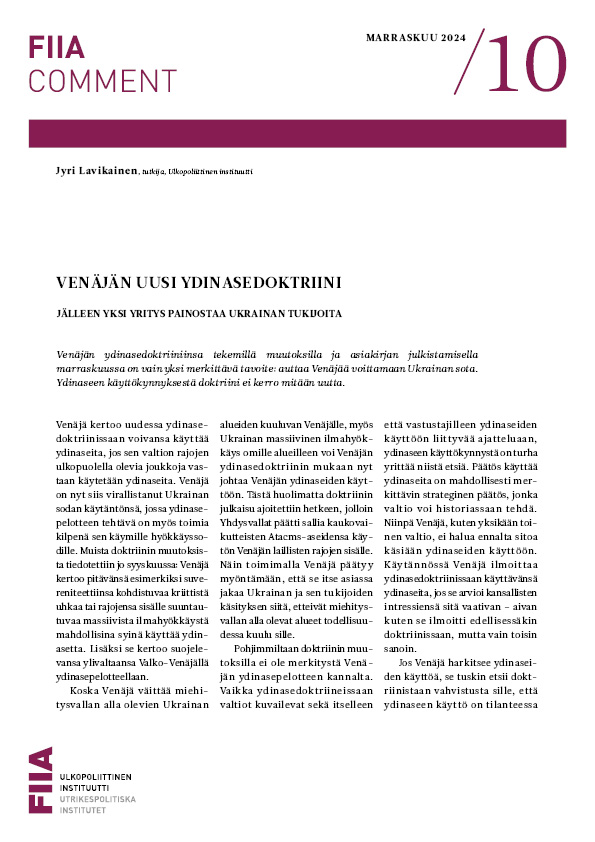Finland’s and Sweden’s NATO membership offers an opportunity to deepen Nordic defence cooperation. An agile and pragmatic approach to consolidating the Nordic security brand is now required.
Despite the long history of Nordic cooperation and the fact that Nordic countries share increasingly similar interests in their geopolitical environment, threat perceptions and ways of operating, a joint approach in matters concerning security and defence remains a rather unrefined endeavour. Finland’s and Sweden’s NATO membership will offer a unique opportunity to re-evaluate the future potential of Nordic security and defence cooperation.
Nordic cooperation has previously been criticised for lacking the necessary means to tackle the rising geopolitical tensions in the region. It has been claimed that Nordic cooperation has neither the necessary instruments and sufficient institutional structures, nor the political will to develop a common Nordic security and defence policy. Suggestions have been made to further consolidate cooperation in this field, as well as to develop existing common security frameworks such as Nordic Defence Cooperation (NORDEFCO).
In recent years, Nordic defence cooperation has developed through bilateral and trilateral formats. Finland and Sweden have, for instance, strengthened joint operational planning, situational awareness, host-nation support and exercises. The trilateral statement of intent between Finland, Sweden and Norway in 2020, on the other hand, outlined the ambition to conduct joint operations in crisis situations.
More recently in August 2022, Nordic prime ministers emphasised the importance of pursuing synergies in harmonising national and NATO defence plans. In November, Finnish, Swedish and Norwegian defence ministers signed a joint statement on deepening Nordic defence cooperation.
With a full-scale war raging in Ukraine and geopolitical tensions rising in Europe, the need for a more coordinated Nordic approach in security and defence is more imperative than ever before.
First and foremost, the focus of deepened Nordic security and defence cooperation should be on keeping the home region stable. As the great-power rivalry in the Arctic between the United States, Russia and China is expected to intensify, securitisation of the Arctic region is unavoidable. It is in the mutual interest of all Nordic countries to have a common strategic understanding of the Arctic region.
In the Baltic Sea area, on the other hand, the pooling of capabilities and resources could focus on aerial and maritime surveillance. On the ground, Finland’s long border with Russia will underline the imperative to act in Nordic unison, as Finland will become NATO’s new frontier state to Russia.
Secondly, the Nordic countries should have a more coordinated approach in responding to hybrid threats. This year, the region has witnessed a series of hostile acts of sabotage, such as the explosions that caused extensive damage to the Nord Stream gas pipelines in the Baltic Sea, the destruction of telecommunication cables in Norway, cyberattacks of various kinds and increased illegal surveillance activity close to critical national infrastructures. Lessons from these hybrid situations should be used to deepen mutual knowledge in enhancing total defence and building a common Nordic resilience approach.
Third, as NATO members, the Nordic countries must also meet NATO’s burden-sharing and defence spending criteria. All Nordic countries should continue to invest sufficiently in their national defence, meet NATO’s 2% GDP target on defence spending in the long term, as well as come up with creative ways to pool their scarce resources in capability planning and development. This would not only strengthen NATO’s collective defence, but also make the Nordic niche stronger.
Finally, strengthening Nordic security and defence cooperation should happen primarily within the existing NATO defence-planning processes and structures. In the alliance of the soon-to-be thirty-two member states, discrepancies and conflicts of interest cannot be avoided. Divergent geostrategic interests and capability portfolios have already led to an inevitable specialisation between NATO member states. As Finland and Sweden join NATO, a more coordinated Nordic approach could be adopted in setting joint Nordic capability targets as part of NATO’s defence planning process (NDPP). A common Nordic approach is thus required to make the Nordic voice better heard within the transatlantic community.
This amplifying of the Nordic voice, however, should not result in forming a permanent Nordic bloc within NATO. Rather, the approach should be pragmatic and flexible, based on the core issues of NATO’s collective defence. Nordic countries could further deepen joint capability planning and development, operations in the region could be commanded from a Nordic operational command when appropriate, and a joint approach to NATO-led exercises and crisis management operations could be adopted.
In certain issues, such as strategic and operational planning, more fixed Nordic solutions could be found. For example, a common contingency plan for NATO’s Nordic Northern Flank countries could be drafted, whereas in other areas, such as common exercises, more current needs of a larger pool of NATO member states could figure. For instance, the UK-initiated Joint Expeditionary Force (JEF) might function as a tool for developing common, wider Nordic exercise concepts in the High North.
Finland’s and Sweden’s NATO membership will offer a formidable opportunity for the Nordics to consolidate their self-image as global security providers. The basis for this self-image is the Nordic identity, how this is defined in relation to others, and the Nordic values of democracy, rule of law, respect for human rights, equality and sustainability. As the Nordics now continue to act as more of a unified whole in the transatlantic community, these values must remain at the core of the new Nordic brand of security and defence.







